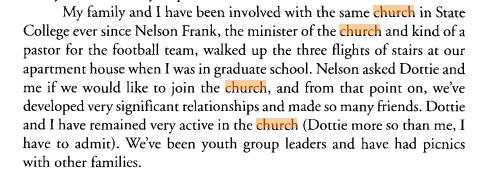I am late to this story which unfolded on Tuesday, Human Rights Day. The Obama Administration called on the rest of the world to decriminalize homosexuality, punctuating this call with remarks from Secretary of State Hillary Clinton in Geneva. The full text of these remarks are here. I am going to pull out some comments that are significant to me.
Clinton directly makes the case that laws criminalizing homosexuality are violations of human rights.
It is violation of human rights when people are beaten or killed because of their sexual orientation, or because they do not conform to cultural norms about how men and women should look or behave. It is a violation of human rights when governments declare it illegal to be gay, or allow those who harm gay people to go unpunished. It is a violation of human rights when lesbian or transgendered women are subjected to so-called corrective rape, or forcibly subjected to hormone treatments, or when people are murdered after public calls for violence toward gays, or when they are forced to flee their nations and seek asylum in other lands to save their lives. And it is a violation of human rights when life-saving care is withheld from people because they are gay, or equal access to justice is denied to people because they are gay, or public spaces are out of bounds to people because they are gay. No matter what we look like, where we come from, or who we are, we are all equally entitled to our human rights and dignity.
Then she dispels the myth that homosexuality is a Western invention.
The second issue is a question of whether homosexuality arises from a particular part of the world. Some seem to believe it is a Western phenomenon, and therefore people outside the West have grounds to reject it. Well, in reality, gay people are born into and belong to every society in the world. They are all ages, all races, all faiths; they are doctors and teachers, farmers and bankers, soldiers and athletes; and whether we know it, or whether we acknowledge it, they are our family, our friends, and our neighbors.
Being gay is not a Western invention; it is a human reality. And protecting the human rights of all people, gay or straight, is not something that only Western governments do. South Africa’s constitution, written in the aftermath of Apartheid, protects the equality of all citizens, including gay people. In Colombia and Argentina, the rights of gays are also legally protected. In Nepal, the supreme court has ruled that equal rights apply to LGBT citizens. The Government of Mongolia has committed to pursue new legislation that will tackle anti-gay discrimination.
Clinton directly addressed the perceived conflict between gay rights to live freely with religious beliefs.
The third, and perhaps most challenging, issue arises when people cite religious or cultural values as a reason to violate or not to protect the human rights of LGBT citizens. This is not unlike the justification offered for violent practices towards women like honor killings, widow burning, or female genital mutilation. Some people still defend those practices as part of a cultural tradition. But violence toward women isn’t cultural; it’s criminal. Likewise with slavery, what was once justified as sanctioned by God is now properly reviled as an unconscionable violation of human rights.
In each of these cases, we came to learn that no practice or tradition trumps the human rights that belong to all of us. And this holds true for inflicting violence on LGBT people, criminalizing their status or behavior, expelling them from their families and communities, or tacitly or explicitly accepting their killing.
Of course, it bears noting that rarely are cultural and religious traditions and teachings actually in conflict with the protection of human rights. Indeed, our religion and our culture are sources of compassion and inspiration toward our fellow human beings. It was not only those who’ve justified slavery who leaned on religion, it was also those who sought to abolish it. And let us keep in mind that our commitments to protect the freedom of religion and to defend the dignity of LGBT people emanate from a common source. For many of us, religious belief and practice is a vital source of meaning and identity, and fundamental to who we are as people. And likewise, for most of us, the bonds of love and family that we forge are also vital sources of meaning and identity. And caring for others is an expression of what it means to be fully human. It is because the human experience is universal that human rights are universal and cut across all religions and cultures.
Clinton seems on the mark to say that this conflict is challenging. Judging from the reaction of religious right talking heads, I think the challenge is right here in the USA.
Clinton then appeals to the Golden Rule. I like this.
Finally, progress comes from being willing to walk a mile in someone else’s shoes. We need to ask ourselves, “How would it feel if it were a crime to love the person I love? How would it feel to be discriminated against for something about myself that I cannot change?” This challenge applies to all of us as we reflect upon deeply held beliefs, as we work to embrace tolerance and respect for the dignity of all persons, and as we engage humbly with those with whom we disagree in the hope of creating greater understanding.
Clinton here is not calling for anyone to agree that homosexual behavior is in line with their religious beliefs. However, she is calling for people to act in accord with their religious beliefs about reciprocal treatment. If you don’t want to be discriminated against for something intrinsic to you, then don’t do it to others.
